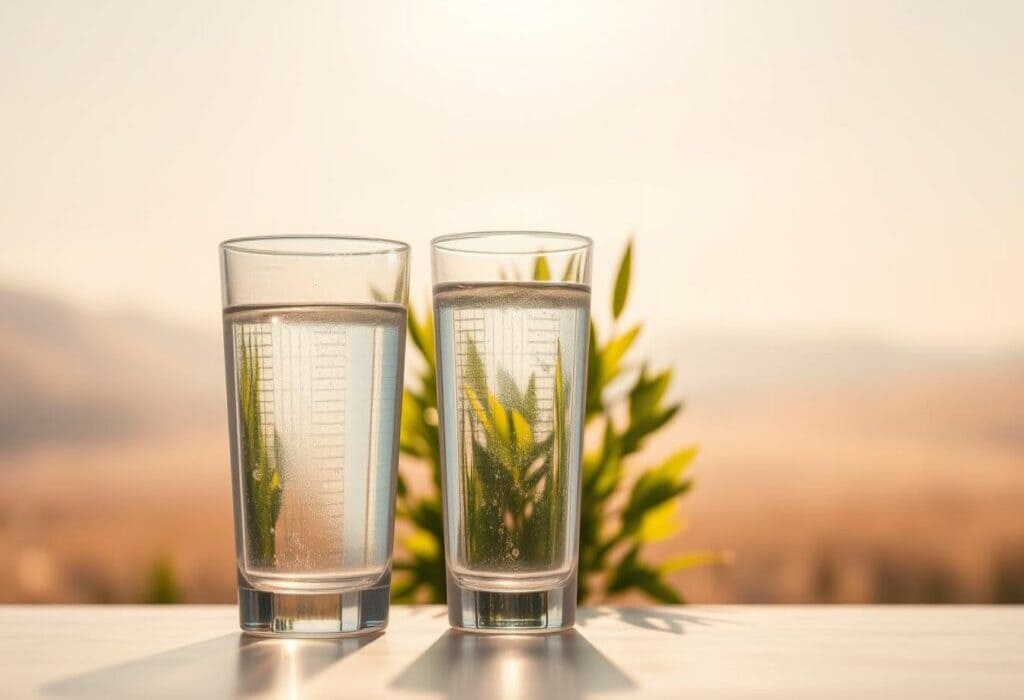
Introduction
Water is the essence of life. It makes up about 60% of the human body and is essential for maintaining health at every stage of life. From cellular activity and organ function to mental clarity and skin vitality, proper hydration is a cornerstone of overall well-being. Yet despite its significance, many people underestimate the importance of regular water intake in their daily routines.
Recent research across Asia, Europe, and America has reinforced the profound impact of hydration on organ performance, immune strength, metabolism, and mental health. In fact, studies show that even mild dehydration can impair cognitive performance, increase fatigue, and weaken immune defenses.
This comprehensive guide explores the vital health benefits of water, the best times to drink it, recommended daily intake, warning signs of dehydration, and scientific evidence from leading medical journals. By the end, you’ll understand why water is far more than a drink — it is a fundamental pillar of health and immunity.

Why Water Is Essential for the Human Body
Water participates in nearly every physiological process. From detoxification and circulation to digestion and temperature regulation, hydration ensures that cells and organs can function efficiently.
Key Roles of Water in the Body
- Detoxification – Flushes toxins through the kidneys and liver.
- Organ Performance – Fuels the brain, heart, kidneys, and liver.
- Metabolic Efficiency – Supports the breakdown and absorption of nutrients.
- Mental Function – Enhances memory, focus, and mood stability.
- Immune Defense – Boosts circulation of white blood cells and antibodies.
✅ Key Fact : According to the U.S. National Academies of Sciences (2020), the recommended daily water intake is 2.7 liters (91 ounces) for women and 3.7 liters (125 ounces) for men, including fluids from both beverages and food sources.
Key Benefits of Drinking Water
1. Regulates Body Temperature
Water helps stabilize internal temperature through sweating and respiration. Insufficient hydration hinders the body’s ability to cool down, increasing risks of heatstroke, muscle fatigue, and exhaustion.
📌 A 2021 study in the Journal of Applied Physiology confirmed that dehydration significantly impairs thermoregulation in athletes, leading to a 20% reduction in physical endurance.
2. Enhances Immune Function
Proper hydration supports the production and transport of immune cells. It helps flush pathogens from the body and reduces inflammation.
🔬 A 2022 study in Frontiers in Immunology found that individuals with optimal hydration levels had stronger white blood cell responses and lower rates of respiratory infections.
3. Boosts Skin and Cellular Health
Skin health is closely linked to hydration. Adequate water:
- Improves skin elasticity
- Reduces wrinkles and dryness
- Supports cell repair and renewal
Dehydration, on the other hand, leads to a dull complexion and premature aging.
📌 Dermatology experts from the European Journal of Clinical Nutrition (2021) confirmed that increased water intake improved skin hydration within 4 weeks of consistent use.
4. Improves Organ Performance
Every organ relies on water for peak performance:
- Kidneys – Filter toxins and prevent kidney stones.
- Liver – Processes nutrients and eliminates waste.
- Brain – Maintains clarity, mood, and memory.
💡 In a 2023 study published in The Lancet, mild dehydration was shown to reduce cognitive performance by 15% among both adolescents and adults.

Hydration and Organ Function : At a Glance
| Daily Water Intake | Primary Benefit |
|---|---|
| 3 liters/day | Boosts immune system efficiency |
| 2 liters/day | Supports kidney and liver function |
| 1.5 liters/day | Enhances brain clarity and digestion |
Best Times to Drink Water
Timing your water intake can optimize its health benefits.
| Time of Day | Health Benefit |
|---|---|
| Upon waking | Jumpstarts metabolism, flushes toxins |
| 30 minutes before meals | Aids digestion, prevents overeating |
| Before exercise | Prevents dehydration, boosts performance |
| After exercise | Replenishes lost fluids, aids recovery |
| Before bed (moderate) | Supports overnight detoxification |
📌 According to Cleveland Clinic (2022), drinking water before meals reduces calorie intake and supports digestion.
How Much Water Should You Drink?
A general rule: Drink 30 mL of water per kilogram of body weight.
| Body Weight | Recommended Intake |
|---|---|
| 50 kg | 1.5 liters/day |
| 60 kg | 1.8 liters/day |
| 70 kg | 2.1 liters/day |
| 80 kg | 2.4 liters/day |
⚠️ Always consult a healthcare professional if you have kidney or heart conditions.
Signs of Dehydration
Recognizing dehydration early prevents long-term damage.
Common Symptoms:
- Dry mouth and cracked lips
- Fatigue and muscle cramps
- Headaches and dizziness
- Constipation and dark urine
- Irritability and poor concentration
🔬 A 2023 Lancet study confirmed that mild dehydration significantly impaired cognitive tasks, particularly decision-making and memory retention.
Tips to Increase Daily Water Intake
- Use a reminder app or smartwatch alert.
- Keep a refillable water bottle nearby.
- Drink one glass with every meal.
- Add natural flavors like lemon, cucumber, or mint.
- Replace sugary sodas with water or herbal tea.
Healthy Beverage Alternatives
- Green Tea – Packed with antioxidants.
- Coconut Water – Natural electrolytes.
- Vegetable Juices – Hydration with added nutrients.
Special Considerations for Women
Hydration is particularly crucial during menstruation, pregnancy, and menopause to regulate hormones and prevent bloating.
Benefits for women include:
- Clearer skin
- Stronger hair
- Reduced PMS symptoms
- Lower risk of urinary tract infections
🧠 A 2021 review in Obstetrics & Gynecology found that women with higher hydration levels reported fewer menstrual irregularities and improved overall reproductive health.

When Can Too Much Water Be Harmful?
Excessive water intake may cause hyponatremia, a condition where sodium levels in the blood drop dangerously low.
Signs of Overhydration:
- Nausea
- Muscle weakness
- Confusion
- Swelling
⚠️ People with kidney or heart disease should follow medical advice regarding safe hydration limits.
Conclusion
Water is far more than a thirst quencher — it is the life force that fuels every cell, tissue, and organ. From boosting immunity and detoxifying organs to supporting brain clarity and skin health, proper hydration provides both immediate and long-term benefits.
Making hydration a habit doesn’t require major lifestyle changes — simply spacing water intake throughout the day and listening to your body’s signals can significantly improve health. Choosing a glass of water over a soda could be the small step that transforms your energy, skin, immunity, and overall quality of life.
Frequently Asked Questions (FAQs)
Q: How long before I see results from drinking more water?
A: Noticeable improvements in skin, digestion, and energy may appear in 3–7 days, while long-term benefits become evident after 2–4 weeks.
Q: Is 3 liters a day safe for everyone?
A: Generally safe, but consult your doctor if you have chronic kidney or heart conditions.
Q: What are signs of overhydration?
A: Excessive urination, clear urine, bloating, fatigue, and confusion.
Q: What are the best hydration tips during exercise?
A: Drink before, during, and after workouts. For intense activity, include electrolyte-rich fluids.
References
- Popkin, B. M., D’Anci, K. E., & Rosenberg, I. H. (2010). Water, hydration, and health. Nutrition Reviews.
- Kenney, W. L., & Chiu, P. (2001). Influence of age on thirst and fluid intake. Medicine & Science in Sports & Exercise.
- National Academies of Sciences, Engineering, and Medicine. (2020). Dietary Reference Intakes for Water.
- Zubair, N., et al. (2022). Hydration and immune system performance. Frontiers in Immunology.
- Stachenfeld, N. S. (2021). Hydration and women’s health. Obstetrics & Gynecology Review.
- The Lancet (2023): Cognitive performance and hydration in adults and adolescents.
- Cleveland Clinic (2022). Hydration and digestive health.





